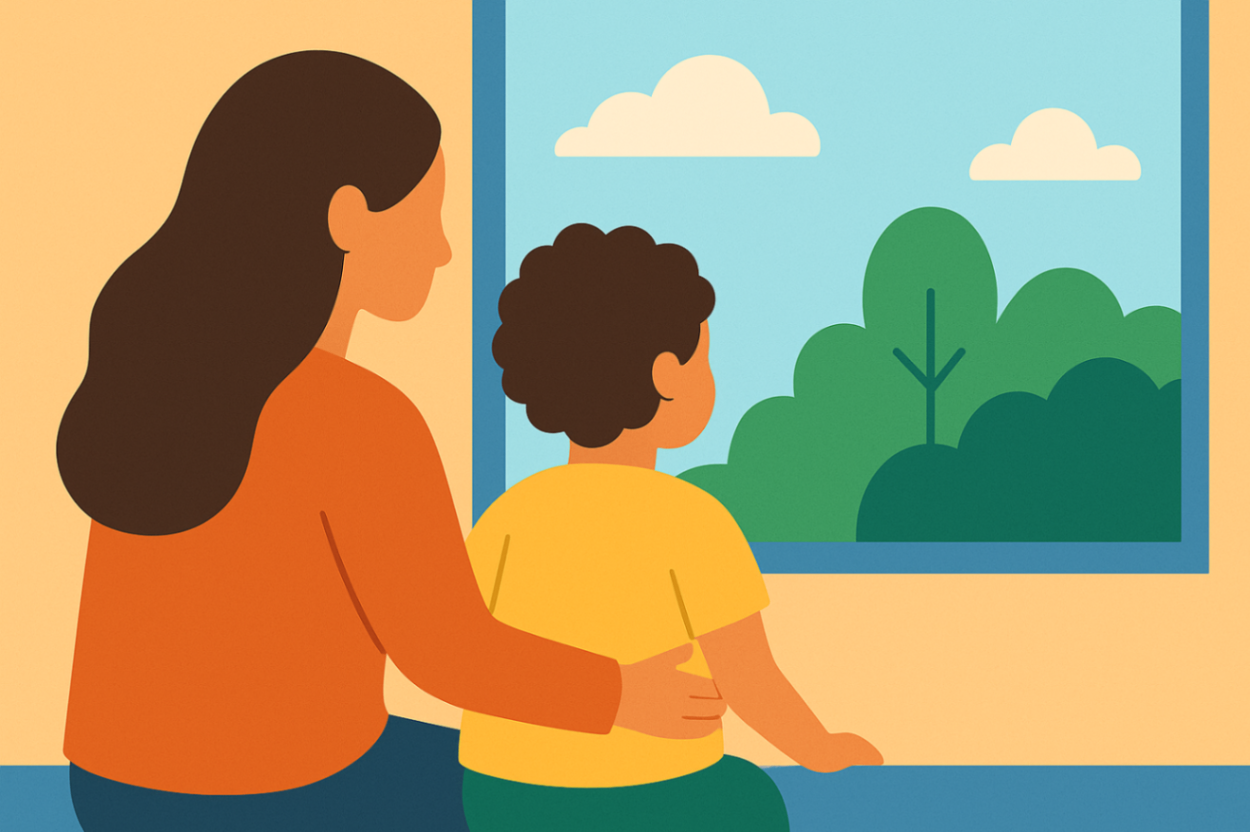
ndis behaviour support for challenging behaviour | pbs guide
8 July, 2025
NDIS Behaviour Support for Challenging Needs
Challenging behaviours can impact a person’s wellbeing, learning, safety, and relationships—especially for individuals with disability. The NDIS (National Disability Insurance Scheme) provides funded support to help participants reduce behaviours of concern, communicate more effectively, and build greater independence.
Using a Positive Behaviour Support (PBS) approach, the NDIS funds structured, proactive plans delivered by trained professionals. In this guide, we explain how the NDIS supports individuals with challenging behaviour and how families can access the right services.
Key Highlights
-
The NDIS funds individualised Positive Behaviour Support (PBS) for people with behaviours of concern.
-
Supports include behaviour support plans, specialist interventions, and skill-building strategies.
-
PBS aims to reduce restrictive practices and promote independence.
-
Therapy can be delivered at home, school, or in the community to develop real-life skills.
-
Families, caregivers, and educators work closely with NDIS behaviour support practitioners to support progress.
Understanding Challenging Behaviour and the NDIS

Challenging behaviours, also known as behaviours of concern, refer to actions that interfere with a person’s ability to participate in daily life. These may include aggression, self-injury, withdrawal, or disruptive behaviour. These behaviours often signal unmet needs, difficulties with communication, or environmental stressors.
The NDIS recognises the importance of addressing these behaviours through individualised, respectful support. Behaviour support is delivered through funded plans and professional guidance that consider the person’s goals, preferences, and environment. With the right approach, individuals can experience better outcomes and stronger relationships. To learn more about the values behind this approach, read what Positive Behaviour Support means.
What Is Considered Challenging Behaviour?
Challenging behaviour means actions that go against what most people expect and can be hard for the person or others around them. This kind of behaviour can come up if a person has needs that are not being met, something in the place around them triggers it, or they have conditions like autism spectrum disorder or attention deficit problems. To help in the best way, it is important to know what causes it and what is happening at the time.
One example is when someone has trouble talking to others. A child who cannot say what they want may act out or act with aggression. Challenging behaviours can range from small things that only disrupt for a short time to very serious actions that need special help. When people see these actions as a way to communicate or show how they feel, it is the first step to really helping.
You can teach better behaviour by using the right plans and support. Supporting people to deal with challenging behaviours is important not only to improve how people get along, but also for the mental health of NDIS participants. It also can give them more freedom. This can lead to using tailored plans, such as a behaviour support plan, for people with autism and other needs within an organisation.
How the NDIS Responds to Behaviour Support Needs

The NDIS gives special funding and help to look at people’s behaviour needs and to cut down on restrictive practices. At the start, there is a behaviour support plan. This plan is made just for each person to help spot things that start tough behaviour and to teach the right actions.
These plans often ask for a full check by trained behaviour support practitioners and a behavioural specialist. This makes sure every strategy fits just right with the person's life and with what they want to achieve. The support may include ways to change challenging behaviour, teach new skills, and change things in their space to help. This plan is based on a Functional Behaviour Assessment. Here’s how that process works in practice.
|
NDIS Services |
Purpose |
|---|---|
|
Behaviour Support Plan |
Shows caregivers and support workers what to do about behaviours that cause worry |
|
Specialist Behavioural Intervention |
Offers direct tips to help lessen tough behaviour and support good actions |
|
Restrictive Practices Modifications |
Tries to stop the need for tough limits so ndis participants can be more free |
With these set supports, ndis participants can talk better, get along more with others, and be more independent day to day.
In-Home and Community-Based Therapy
The NDIS knows how important it is to give therapy to people in places where they feel safe and comfortable. This can be at home or in the community. Being in these places gives support workers the chance to teach new skills and check how the person is doing.
Therapy is all about helping mental health and dealing with behaviours that might be a problem. For example, a person can learn ways to handle stress and use better communication strategies when there is a good support system around them. Caregivers and carers are also important because they help the person use these new skills in daily life even after the sessions end.
When therapy takes place in the community, people get to meet and talk to others. They learn skills that help them live well in their surroundings. Bringing behavioural support into daily life gives people more chances to keep their mental health steady and their quality of life better. It is also easy to get these services, so families and carers can find the help they need without trouble. Want to see how these supports help families in real-life settings? Explore how specialised support works in Liverpool.
Who Can Access These Supports?
NDIS participants in Australia, including both children and adults, can get behaviour support services that fit their own individual needs. These support plans are made to match the goals of each participant, and they also use the ideas and thoughts from caregivers, support workers, or educators.
Carers get help as well. NDIS-trained experts give them advice, so they feel more able to deal with tough behaviours. People who need support, even if they don't have a diagnosis, can get special support through their own participant plan.
NDIS funding lets all people who need extra support get the same access to these services. If you live in Australia and you meet the right rules, you can use these supports with no big problems or blocks in the way.
Working With a Behaviour Support Provider
 A qualified NDIS Behaviour Support Practitioner can help develop and implement an evidence-based plan that fits your child’s or loved one’s needs. Working with a registered provider ensures:
A qualified NDIS Behaviour Support Practitioner can help develop and implement an evidence-based plan that fits your child’s or loved one’s needs. Working with a registered provider ensures:
-
Access to approved therapeutic strategies
-
Monitoring and reporting that meet NDIS guidelines
-
Collaboration with families, schools, and support coordinators
This team-based approach builds long-term success and creates safer, more positive environments.
When you use an NDIS-certified provider, you make sure that the help you get is focused on what works best and meets all the rules. Working together like this helps people and families talk better, build stronger relationships, and get the support they need. In the end, this teamwork with an NDIS provider brings real and lasting positive change. Need help choosing the right team? Here’s what to look for in a PBS provider.
Your Next Step in Accessing Behaviour Support
Connecting with an NDIS behaviour support practitioner is the first step to get the right help. You can have a consultation to find out your individual needs. The NDIS behaviour support practitioner experts will make communication strategies or behaviour support plans. These plans will match what the participant wants to achieve.
Caregivers are important. They help carry out the plans every day at home and in other places. When families work with organisations that focus on support made for them, there will be better teamwork and mental health can get better.
The NDIS makes reaching behaviour support services simple and open to all. You can call, send an email, or use the NDIS online platform to start. This helps you move toward progress and more independence.
Conclusion
The NDIS offers critical behaviour support services to help individuals manage challenging behaviour with dignity and care. Through Positive Behaviour Support, Functional Behaviour Assessments, and targeted interventions, families can access tailored strategies that build life skills and reduce stress. With the right team and the right plan, your child or loved one can experience greater independence, communication, and wellbeing. If you're ready to get started, we're here to help.
If your child or family member is experiencing challenging behaviours, our team is here to help. We provide NDIS-registered Positive Behaviour Support across home, school, and community settings — always tailored to your goals. Book your consultation now.
Frequently Asked Questions
What NDIS support is available for children with challenging behaviour?
The NDIS gives money for programs that help with challenging behaviour. These include things like behaviour support plans and therapy for behaviour. Support workers are there to help kids who need it with this. Carers and providers can work together to find things that help and really work. Often, there are guides like PDFs for them to look at. The guides have useful ideas, so everyone can work as a team to support the child. Not sure if your child needs behaviour support? Here are early signs to look out for.
Does my child need a diagnosis to access behaviour support through the NDIS?
A diagnosis is not needed to get NDIS behaviour support. The NDIS looks at each person’s needs and how their behaviour affects things. Family members can ask for help and use NDIS funding for support that fits the individual needs of their loved ones in Australia. These services aim to make support better for people and their families.
What is a Positive Behaviour Support Plan (PBSP)?
A Positive Behaviour Support Plan (PBSP) is a personalised plan made to help encourage positive behaviour and teach appropriate behaviour. It also works to help lower behaviours that can be difficult. It uses steps that are planned ahead of time to bring about good changes. The behaviour support plan sets clear goals and uses special methods to get there. The plan also means that people get support in many different places, not just one. These reviews happen often to keep the support up to date and make sure it is working well. With behaviour support, people can have a better quality of life, feeling better and getting more out of every day.
Can NDIS behaviour support Liverpool happen at school or childcare?
Yes, behaviour support can be given in schools or childcare settings. The educators and staff may use strategies fit for each child to help with behaviour problems. This helps make the classroom a better place to learn. When families and NDIS workers work together, they can make sure the child gets the right behaviour support in these important early years.
What’s the difference between behaviour support and other therapies?
Behaviour support looks at behaviours that may cause worry. It teaches other ways for people to act by using PBS methods. Some other therapies work on mental health or provide mental health support, helping people learn new skills. These therapies often use positive reinforcement, such as saying something nice to the person. Both ways can work well together, based on what someone wants to achieve. See how behaviour therapy compares to mental health counselling.
.svg)

















